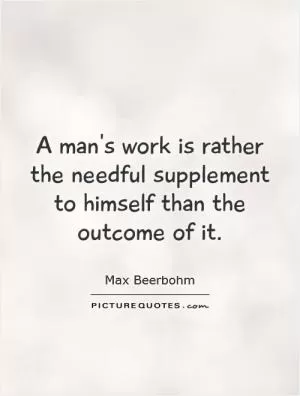Lift latch, step in, be welcome, Sir, Albeit to see you I'm unglad

Lift latch, step in, be welcome, Sir, Albeit to see you I'm unglad
Max Beerbohm was a renowned English essayist, caricaturist, and parodist known for his wit and satirical humor. His works often reflected his keen observations of society and culture, and his ability to capture the absurdities of human behavior with a sharp and incisive pen. One of his most famous works, "Zuleika Dobson," is a satirical novel that skewers the pretensions and follies of the upper classes.The phrase "Lift latch, step in, be welcome, Sir, Albeit to see you I'm unglad" captures Beerbohm's distinctive style and wit. The use of archaic language and formal politeness in addressing the visitor adds a touch of irony to the statement. The speaker is ostensibly welcoming the visitor, but the underlying tone suggests a certain reluctance or displeasure at their arrival.
This ambivalence towards social niceties and conventions is a recurring theme in Beerbohm's work. He often satirized the superficiality and insincerity of polite society, exposing the hypocrisy and shallowness that lurked beneath the veneer of respectability. In "Zuleika Dobson," for example, Beerbohm skewers the vanity and self-importance of the aristocracy, portraying them as absurd and ridiculous figures who are ultimately undone by their own hubris.
The phrase "Lift latch, step in, be welcome, Sir, Albeit to see you I'm unglad" can be seen as a reflection of Beerbohm's own ambivalent attitude towards social conventions and formalities. While he was undoubtedly a master of wit and satire, he also had a deep sense of irony and skepticism towards the world around him. His works are filled with sharp observations and cutting insights into human nature, revealing the absurdity and folly that lies at the heart of society.












 Friendship Quotes
Friendship Quotes Love Quotes
Love Quotes Life Quotes
Life Quotes Funny Quotes
Funny Quotes Motivational Quotes
Motivational Quotes Inspirational Quotes
Inspirational Quotes